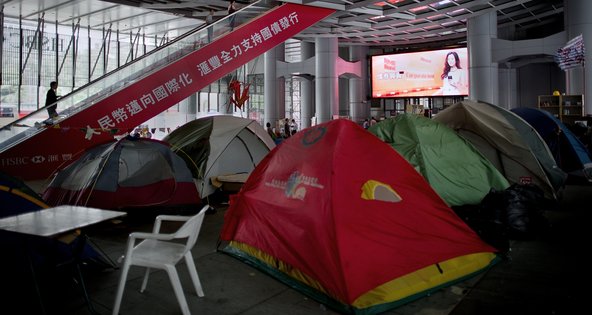In fits and starts, businesses across a broad swath of the East Coast struggled to recover on Tuesday from Hurricane Sandy, even as executives conceded that it would be days, at least, before things returned to normal.
Manufacturers like Mr. Selldorff’s company, Legrand, a maker of electrical equipment, were among the hardest hit, with normal production not expected to resume in Fairfield until early next week.
In New York City, banks and other financial services firms predicted that they would be mostly back on their feet when financial markets reopened Wednesday and customers began to venture out to local branches.
JPMorgan Chase’s headquarters on Park Avenue and its principal trading floors a few blocks north on Madison Avenue are set to reopen Wednesday, as are at least 100 hub bank branches in New York, New Jersey and Connecticut that were stocked with extra cash before the storm.
“I think power in New York City will be a challenge,” said Frank J. Bisignano, co-chief operating officer of JPMorgan Chase. “We’re not talking about weeks, but we are talking about more than a day.”
For many companies, as for individuals, the big question mark was when power providers and other utilities would be functioning reliably again.
More than five million households in New York, New Jersey and Connecticut were without power Tuesday afternoon, as utilities worked to repair downed lines.
Like the power companies, Verizon Communications, the largest wireline phone provider in New York, was hit hard.
On Monday night, the company posted a photo of the first floor of its office at 140 West Street in Lower Manhattan, which had been flooded with three feet of water. Bill Kula, a spokesman, said the storm surge from the hurricane flooded Verizon’s central offices in Lower Manhattan, Queens and Long Island, causing power failures.
In some cases, even its backup power systems failed, leading to the loss of voice, Internet and television services in those areas.
Mr. Kula said the company would have to work with the power companies to pump water out from underground and dry off equipment. He added that many Verizon employees were working from home or from other offices, and that many workers from elsewhere had been rushed to New York to help with the restoration efforts.
“It couldn’t have happened in a more challenging location, in the largest city where we provide wireline services, but it’s not unprecedented for us to have to undergo herculean efforts to restore service,” Mr. Kula said.
He added that a priority for Verizon was the financial district, where it is the primary wireline provider, affecting many businesses. “We have crews working around the clock to do everything we can to ensure the financial district is fully up and running,” he said.
At JPMorgan Chase, about 25,000 employees worked remotely on Monday, but that figure dropped to 15,000 to 20,000 on Tuesday as lights went out across the region.
On a typical day, about 2,000 to 3,000 employees work through the bank’s remote computer system.
Some retailers, like Ace Hardware, rushed to reopen stores and stock them with everything from extra batteries to mops and cleaning supplies, said John Venhuizen, the company’s president and chief operating officer. Of Ace’s 500 stores in the region directly affected by the storm, about 450 managed to open on Tuesday.
All told, the lost output from and overall effects of the storm could shave as much as 0.6 percentage points off annualized fourth-quarter economic growth, according to an analysis by IHS Global Insight.
Some sectors, like fuel providers, seemed to have escaped the worst of Hurricane Sandy’s wrath. As technicians returned to some idled refineries, their early reports suggested that regional gasoline and fuel supplies would not be seriously affected by the storm.
Reporting was contributed by Reed Abelson, Brian X. Chen and Katie Thomas in New York, Clifford Krauss in Houston and Bill Vlasic in Detroit.
Article source: http://www.nytimes.com/2012/10/31/business/after-hurricane-sandy-businesses-try-to-restore-service.html?partner=rss&emc=rss
